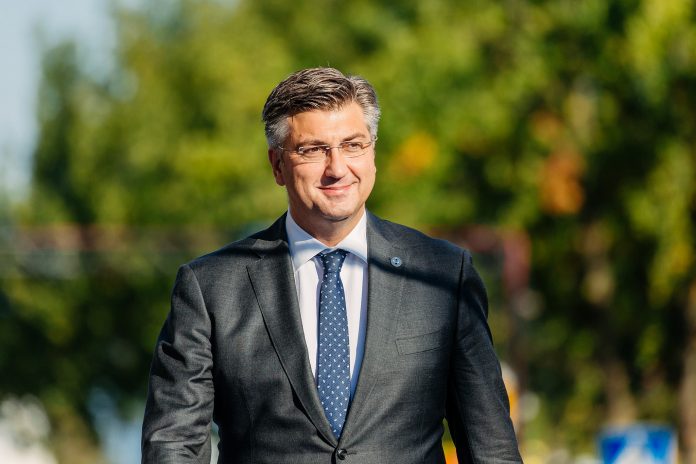Croatia has entered the European Union to build and develop the European project together with our partners, to build a future based on equality – equality of states, of citizens and of opportunities. So said Croatian Prime Minister Andrej Plenković, the second EU leader to debate the Future of Europe with MEPs on February 6.
Presenting his vision for the future of Europe, Plenković stressed that solidarity must remain “one of the cornerstones of our actions”. He said a united Europe is key, “because we can only move ahead if we are together”.
The Croatian PM also highlighted the importance of growth and cohesion and that the EU needs all of its members to advance equally. “Our citizens should all feel the benefits of EU membership,” he said. “They should embrace and actively participate in the continuation of its construction.”
Welcoming the Croatian PM, European Parliament President Antonio Tajani said: “In his address, Prime Minister Plenković, outlined a positive, forward-looking vision for the future of Europe in which Croatia and the EU, by working together, will deliver a more effective Union. He made excellent arguments in favour of EU membership and how it has benefitted Croatia. At the same time, he rightly pointed out some of the challenges that we must all face together such as security, uncontrolled migration and youth unemployment.”
According to a European Parliament press release, a majority of the parliament’s group leaders praised Plenković’s commitment to a more democratic Europe. Some MEPs stressed the importance of preserving EU citizens’ national identity, combined with a strong European one, without nationalists seeing this as a contradiction. Others reaffirmed the need for more investment to create jobs, decent living standards, and a Europe that takes more social responsibility.
MEPs also called for institutional reforms, such as introducing a pan-European constituency, and reiterated their firm pledge to stand by other countries in the Western Balkans wanting to join the EU, once all border disputes are solved, and the Commission’s criteria have been met.

